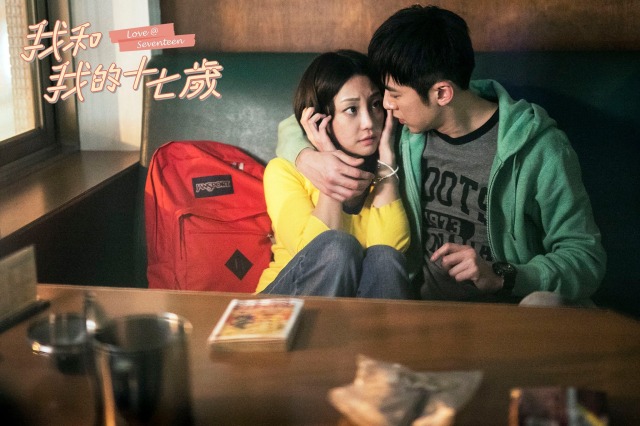EBC (東森電視, previously known as ETTV) always does this; that is, present their dramas in the form of what feels like vignetted montages rather than in free flow, streamlined, raw, and unfiltered—choosing to withhold rather than to provide. I first noticed this style of pace with Marry Me or Not? (必娶女人), and sure enough, it carried into Love @ Seventeen (我和我的十七歲) as well. Everything is either too slow or too abrupt; individual frames are edited to slow motion, but frames pieced together creates the effect of jumping from one place to the next—as in, you can see the linear progression of events, just not necessarily the progress itself in the level of depth you’d like. And I let this slide during the teenage portion of the drama since I understood that the focal point of the show is not what happens to them as kids but rather how this changes their dynamic as adults. Yet fast forward thirteen years—and everything is still presented like a montage. Artful, yes, but also stilted. I love this drama, I really do. I really do love everything from the writing and acting to the cinematography and camerawork, but I remain undecided about the editing. This isn’t a superficial rom-com. Why choose to withhold the details and nuances of an experience, when there is so much meat to work with in the foundation? Tell me more about the Alice (Nikki Hsieh) who once laughed but laughs no longer. Tell me more about Peter (Edison Wang) who stayed by her side all these years as he, too, underwent an emotional transformation. Tell me more about He Haoyi (Lego Lee) who abandoned her unwittingly, whose—in his own words—”timing is more ruthless than time,” who paid the price of thirteen years only to see her again as a stiff, robotic workaholic, no longer the sunshine girl of their youth. But by the sixth episode, in an abrupt fashion, thirty-year-old Alice becomes seventeen again, in heart and soul (and most importantly, memory). It’s neither a spoiler nor a shock as this was always a part of the synopsis, but I can’t help but have my reservations as to how unnaturally this occurred—both in the events leading up to the incident and the execution of the incident itself. It’s all a montage. It’s saying, “This happens, this happens, then this happens. You get the gist.” Where’s the transition? Where’s the growth? It’s too bad the editing is frustrating, but it’s also too bad that I love this drama too much to care.


